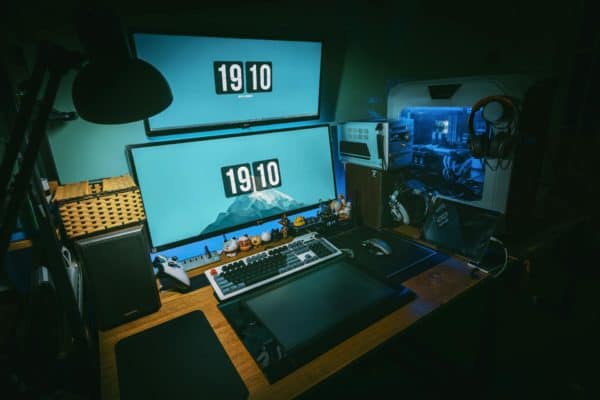
In the nexus of gaming, cryptocurrency has discovered a compelling intersection, introducing an era of transformation termed Play-to-Earn. This vibrant merging engages with blockchain technology to reimagine the conventional gaming panorama. Within this inquiry, we will delve into the essence of Play-to-Earn, scrutinize the historical amalgamation of cryptocurrency in gaming, and emphasize the importance of this dynamic intersection. In navigating this transformative landscape, individuals can explore valuable insights from investment education entities like www.immediate-xrise.com, which provides a wealth of knowledge for enthusiasts seeking a deeper understanding of the evolving dynamics in this space.
The Genesis: Cryptocurrency in Gaming
Early Adoption and Integration
The infusion of cryptocurrency into gaming is not a recent phenomenon. In its nascent stages, forward-thinking game developers began experimenting with incorporating decentralized elements into their virtual worlds. This laid the groundwork for the integration of blockchain technology, fostering a novel approach to in-game economies.
Evolution of In-Game Currencies
Over time, gaming ecosystems witnessed a shift from centralized in-game currencies to decentralized alternatives backed by blockchain. This evolution brought forth a more transparent and secure method of handling in-game transactions, fostering a sense of autonomy and ownership among players.
Challenges and Opportunities
However, the journey was not without challenges. The integration of cryptocurrency in gaming faced hurdles such as scalability issues, regulatory concerns, and the need for widespread acceptance. Simultaneously, these challenges presented unique opportunities to explore new possibilities and redefine the relationship between players and virtual environments.
Play-to-Earn Mechanics
Exploring Decentralized Gaming Economies
Play-to-Earn fundamentally alters the dynamics of gaming economies by introducing decentralized structures. Blockchain facilitates the creation of transparent, tamper-proof ledgers that record every in-game transaction, ensuring fairness and equity among players.
Tokenization of In-Game Assets
One of the pillars of Play-to-Earn is the tokenization of in-game assets. Through this process, virtual items, characters, and even entire ecosystems are represented as tokens on the blockchain. This not only provides players with true ownership but also opens avenues for cross-game asset utilization.
Smart Contracts and Gaming Rewards
Smart contracts play a pivotal role in Play-to-Earn models, automating the distribution of rewards based on predefined conditions. This feature eliminates the need for intermediaries, enhancing efficiency and ensuring that players receive fair compensation for their contributions to the gaming ecosystem.
NFTs in Gaming
NFTs as Unique In-Game Assets
Non-Fungible Tokens (NFTs) have emerged as a revolutionary aspect of Play-to-Earn, enabling the creation of unique and scarce in-game assets. These assets, often represented as NFTs, can be traded, owned, and even showcased across various virtual environments.
Tokenization of Virtual Real Estate
Beyond individual assets, virtual real estate has become a prime candidate for tokenization. Blockchain allows players to truly own and trade virtual lands, fostering a new dimension of value creation within gaming communities.
Impact on Ownership and Trade
NFTs redefine the concept of ownership in gaming by providing players with immutable proof of possession for their digital assets. This not only enhances the gaming experience but also introduces novel opportunities for decentralized and peer-to-peer asset exchange.
Decentralized Autonomous Organizations (DAOs) in Gaming
Governance Mechanisms in Gaming Communities
The advent of Decentralized Autonomous Organizations (DAOs) has introduced inventive governance mechanisms within gaming communities. DAOs empower players to actively participate in decision-making processes, shaping the direction of their virtual worlds.
Decision-Making and Participation
DAOs democratize the gaming ecosystem by giving players a voice in the development and modification of game dynamics. This fosters a sense of community and shared responsibility, aligning the interests of developers and players.
Risks and Challenges
Security Concerns in Play-to-Earn Models
While the Play-to-Earn model presents numerous advantages, it is not without its share of security considerations. The decentralized nature of blockchain, while offering transparency, also poses challenges related to potential vulnerabilities and exploits that could compromise the integrity of gaming environments.
Regulatory Landscape and Compliance
The intersection of cryptocurrency and gaming brings forth regulatory challenges that necessitate careful navigation. Governments and regulatory bodies are still grappling with the classification and oversight of these novel forms of digital assets within virtual ecosystems.
Addressing Inequality and Accessibility
Despite the promise of Play-to-Earn in fostering equity, there are concerns about potential inequalities arising within gaming communities. Issues such as access to resources, technological disparities, and economic barriers need to be addressed to ensure inclusivity.
Future Prospects and Trends
Emergence of New Gaming Business Models
As Play-to-Earn continues to gain traction, the gaming industry is witnessing the emergence of inventive business models. Developers are exploring alternative revenue streams, moving beyond traditional monetization strategies to adapt to the evolving expectations of players.
Integration of Virtual Reality (VR) and Augmented Reality (AR)
The future of Play-to-Earn intersects with immersive technologies like Virtual Reality (VR) and Augmented Reality (AR). This integration promises to enhance the gaming experience, blurring the lines between the virtual and physical worlds.
The Role of Blockchain in Shaping the Future of Gaming
Blockchain technology, the cornerstone of Play-to-Earn, is poised to play a pivotal role in shaping the future of gaming. As developers continue to harness the potential of blockchain, we can anticipate a paradigm shift in the way games are developed, distributed, and experienced.
Conclusion
In summary, the convergence of cryptocurrency and gaming through Play-to-Earn signifies a groundbreaking epoch in the gaming realm. Commencing with the early integration of blockchain and extending to the tokenization of in-game assets and the ascension of NFTs, this amalgamation is fundamentally transforming the player’s interaction with virtual environments. As the industry contends with hurdles and explores novel opportunities, the continuous progression of cryptocurrency in gaming heralds a future where virtual experiences attain unprecedented levels of immersion, equity, and participant engagement.
 Gearfuse Technology, Science, Culture & More
Gearfuse Technology, Science, Culture & More


